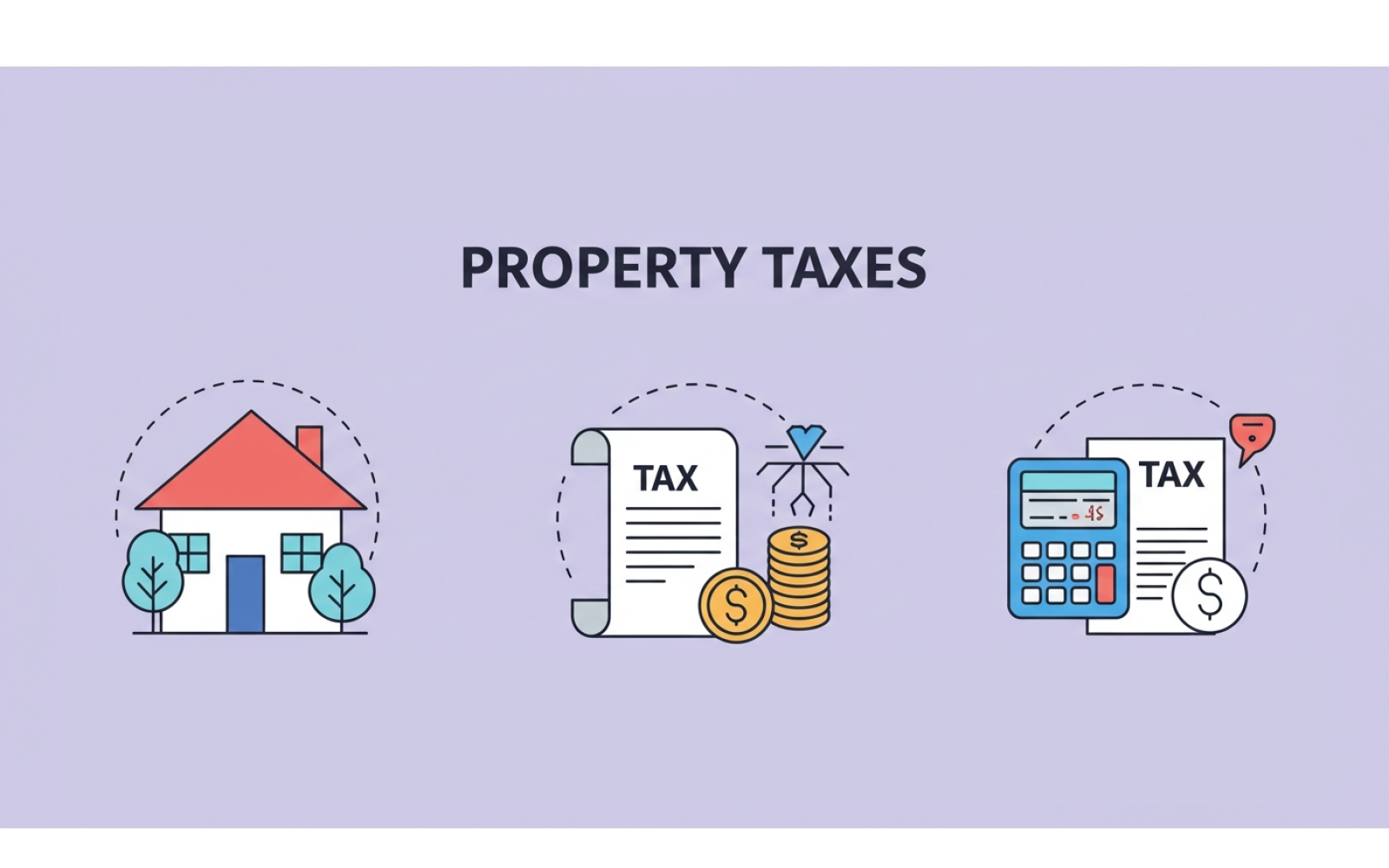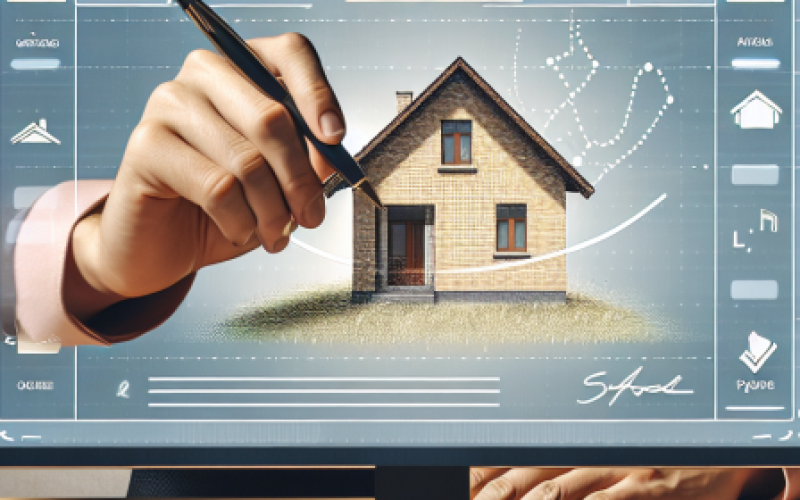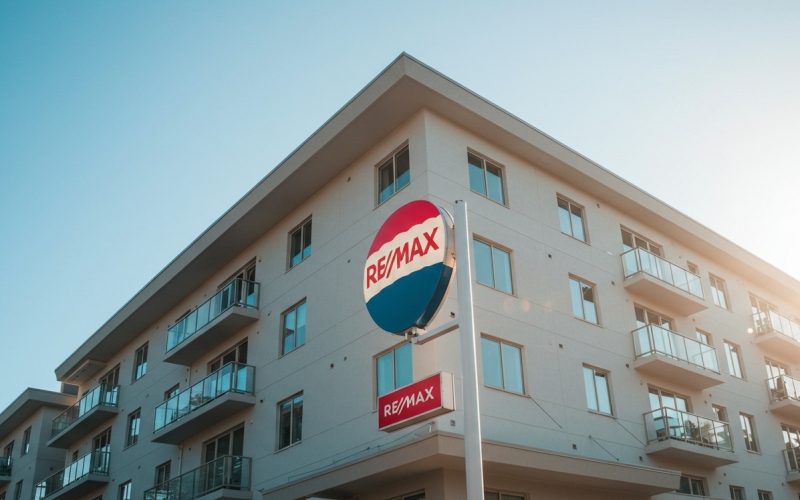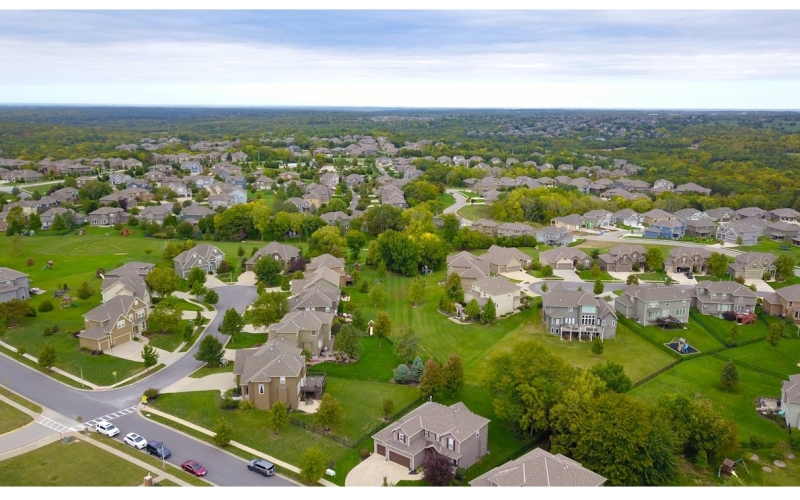Iowa Property Taxes of 2025

Key Points:
- Property taxes in Iowa fund essential local services such as education, infrastructure, and emergency services.
- Taxes are assessed based on the property's market value, determined annually by county assessors.
- Payments are due in two installments: the first by September 30th and the second by March 31st.
- Various credits and exemptions, like the Homestead Tax Credit, can reduce tax liabilities for eligible homeowners.
- Homeowners can appeal assessments they believe are inaccurate through a structured process.
Table of Contents:
- Introduction
- What Are Property Taxes?
- How Are Property Taxes Assessed in Iowa?
- Understanding Your Property Tax Statement
- Payment of Property Taxes
- When Are Property Taxes Due?
- How to Pay Your Property Taxes
- When Are Property Taxes Due?
- Property Tax Credits and Exemptions
- Homestead Tax Credit and Exemption
- Military Service Exemption
- Other Available Credits
- Homestead Tax Credit and Exemption
- What to Do If You Disagree with Your Assessment
- Resources for Iowa Homeowners
- Conclusion
- FAQs
Paying taxes on properties is a common knowledge for everyone but, the laws that govern the taxes that we pay change from time to time and it also depends on what state you are in.
Taxes are essential for the government to continue doing its services and use those taxes to improve our quality of life. From roads, to schools and even the raw materials we use and consume everyday take taxes before it reaches our hands.
This blog will guide you through the updated facts regarding the property taxes in iowa this year of 2025.
What Are Property Taxes?
Property taxes are annual charges homeowners pay based on the value of their property. Taxes allow us to enjoy the things we have today. They are funds that the government acquire for the development of the economy and quality of life that we all enjoy today. Things such as public education, infrastructure, food, and emergency response services are products of well spent taxes that each one of us pay so that the whole community benefits.
How Are Property Taxes Assessed in Iowa?
In Iowa, Property Taxes are assessed by country assessors. They evaluate your property by factors such as the size, location, and improvements. They evaluate properties to determine the market value every January 1st.
Understanding Your Property Tax Statement
Porperty tax statements is a breakdown of the taxes you need to pay. It includes the Assessed Value, Taxable Value, Levy Rate and the Taxing Authorities.
Payment of Property Taxes
When Are Property Taxes Due?
Property taxes in Iowa are due in two installments:
- First Installment: Due by September 30th.
- Second Installment: Due by March 31st.
If the due date falls on a weekend or holiday, the deadline is extended to the next business day. Late payments will have a penalty of 1.5% per month, so always pay your taxes on time.
How to Pay Your Property Taxes
You have these options to pay your property taxes:
- Credit Card
- Debit Card
- ACH Debit/Credit
- Cash
Source: Iowa Department of Revenue.
Property Tax Credits and Exemptions
Iowa offers several programs to help reduce property tax burdens:
Homestead Tax Credit and Exemption
The Homestead Tax Credit; you must own and live in the property as your main home by July 1 each year, declare Iowa as your state of residence for income tax, and live in the home for at least six months each year. Military personnel or those in nursing homes who don’t live in the home are also eligible.
Military Service Exemption
This exemption reduces the taxable value of property for military veterans. The amount of the exemption varies, and to be eligible, you must own the property on July 1 of each year. Veterans need to file a claim with the local assessor by July 1 to qualify, but once approved, they don't need to file claims for the same property in subsequent years.
Other Available Credits
Additional credits and exemptions include:
- Disabled Veteran's Homestead Credit: For veterans with a service-connected disability rating of 100%.
- Senior and Disabled Citizen Property Tax Credit: Based on income eligibility for those aged 70 and above or disabled individuals.
Visit Iowa Department of Revenue for more
What to Do If You Disagree with Your Assessment
If you believe your property's assessed value is incorrect, you can:
- Informal Review: Contact your county assessor's office to discuss your concerns.
- Formal Protest: File a protest with the local Board of Review between April 2nd and April 30th.
- Appeal: If unsatisfied with the Board's decision, you can appeal to the Property Assessment Appeal Board or district court within 20 days of the Board's decision.
Resources for Iowa Homeowners
For more information and assistance:
- Iowa Department of Revenue: Offers comprehensive guides on property taxes.
- County Treasurer's Office: Provides localized information and payment options.
- County Assessor's Office: Assists with assessments and exemption applications.
Conclusion
Always make sure to file your taxes on time to avoid penalties on your property. As long as you have or rather you are the owner of the property then, you must pay property taxes each year.
FAQs
What happens if I miss a property tax payment?
A penalty of 1.5% per month is applied to late payments.
Can my property taxes change each year?
Yes, changes in assessed value or levy rates can affect your tax amount.
How do I apply for the Homestead Tax Credit?
Submit an application to your county assessor by July 1st.
Are there property tax benefits for veterans?
Yes, eligible veterans can apply for the Military Service Exemption.
What if I disagree with my property's assessed value?
You can appeal through an informal review or formal protest with your county assessor's office
Recent Blogs


What Is Buyer’s Remorse? How to Avoid Regret After Buying a Home
You saved, planned, and finally signed all the paperwork. The keys are in your hand, and your new home is officially yours. But as the excitement fades, a strange feeling sneaks in. Instead of joy, you start to feel unsure. You wonder, "Did I make the right choice?" or "What if I rushed into this?"
Read MoreWhat Is Buyer’s Remorse? How to Avoid Regret After Buying a Home
1031 Exchange Explained: How to Sell and Buy Property Without Paying Taxes (Right Away)
A 1031 exchange is a rule in the U.S. tax code that lets you sell one investment property and buy another without paying taxes right away
Read More1031 Exchange Explained: How to Sell and Buy Property Without Paying Taxes (Right Away)
How to Find a Buyer for Commercial Real Estate
Finding the right buyer takes more than luck. It takes action. And the more prepared and involved you are, the faster your sale can happen—and the better your results will be.
Read MoreHow to Find a Buyer for Commercial Real Estate
The Best Real Estate Tools For Homebuyers
These days, you need to move faster because the faster you move, the more money you save. And the more organized you are, the less you make mistakes, and today, a mistake costs a lot!
Read MoreThe Best Real Estate Tools For Homebuyers
Real Estate Branding: How to Build a Powerful Identity That Sells!
Strong brands create feelings. Whether it’s confidence, comfort, or trust—your brand is how you make clients feel before and after every deal.
Read MoreReal Estate Branding: How to Build a Powerful Identity That Sells!
What Is A Rental Property?
A rental property is being rented by the owner of said property for the sole purpose of making a profit.
Read MoreWhat Is A Rental Property?
What Happens to U.S. Real Estate When War Breaks Out?
When war breaks out, real estate markets react fast—home prices may drop, demand slows, interest rates shift, and investors often become more cautious.
Read MoreWhat Happens to U.S. Real Estate When War Breaks Out?
How to Start Investing in Real Estate Even If You're a Beginner!
Start investing in real estate by setting a budget, choosing a property type, getting financing, and working with a trusted agent or advisor.
Read MoreHow to Start Investing in Real Estate Even If You're a Beginner!
Listing Checklist Before Selling a House
Before listing your house, clean and declutter, make small repairs, and boost curb appeal. Gather key documents, set a fair price with your agent, and take quality photos. Keep the home clean and inviting for showings.
Read MoreListing Checklist Before Selling a House
Is It Cheaper to Build or Buy a House
Whether it's cheaper to buy or build a house depends on several factors like location, materials, and labor costs. In many areas, buying an existing home is often more affordable and faster than building one. However, building a home can give you more control over design and energy efficiency. It’s important to compare costs in your area and consider your budget, timeline, and preferences.
Read MoreIs It Cheaper to Build or Buy a House
Cheapest Places to Live in Iowa
Iowa has several affordable places to live, such as Keokuk, Oelwein, and Fort Dodge, known for low housing costs and overall affordability. Keokuk offers scenic views with homes under $90,000, while Oelwein and Fort Dodge provide affordable rent and low property taxes. Cities like Waterloo and Creston also offer budget-friendly options, making Iowa a great choice for those seeking an affordable lifestyle.
Read MoreCheapest Places to Live in Iowa

